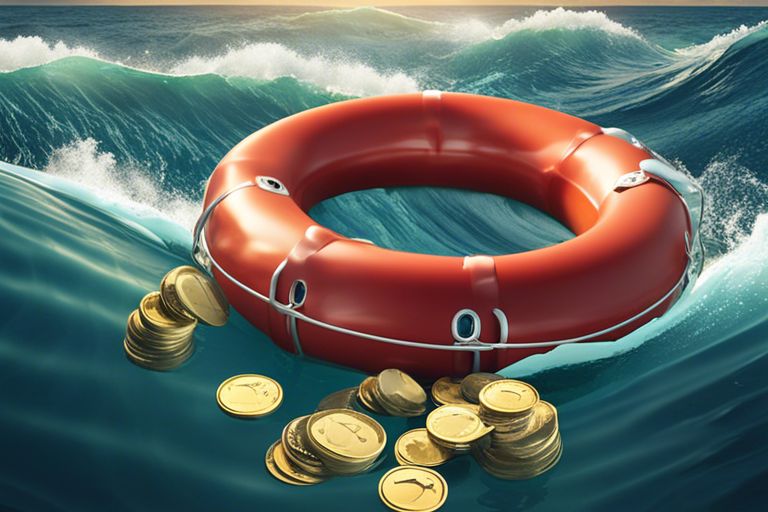
With uncertain economic times and unexpected expenses lurking around the corner, having an emergency fund is more crucial than ever in personal finance. This safety net can prevent financial crises, reduce debt, and provide peace of mind in times of need. Check out this article on Why an Emergency Fund Is More Important Than Ever to learn more about the significance of this fundamental financial cushion.
Key Takeaways:
- Essential for Financial Stability: Emergency funds provide a safety net for unexpected expenses, helping to avoid debt and financial stress.
- Recommended Savings Goal: Aim to have 3 to 6 months’ worth of living expenses saved up in your emergency fund to cover any sudden financial setbacks.
- Peace of Mind: Having an emergency fund in place allows you to face uncertainties with confidence, knowing you are prepared for any financial emergencies that may arise.
Building an Emergency Fund
Calculating the Ideal Emergency Fund Size
One important aspect of building an emergency fund is determining the ideal size that will provide you with financial security during unexpected situations. To calculate this, financial experts generally recommend saving 3 to 6 months’ worth of living expenses. This amount can vary based on your individual circumstances, such as income stability, expenses, and dependents.
Strategies for Saving Money
Fund
Regarding building your emergency fund, one of the most crucial strategies is to prioritize saving consistently. Set up an automatic transfer from your checking account to a separate savings account designated for emergencies. This ensures that you consistently contribute to your fund without having to think about it. Having a separate account for your emergency fund can help prevent you from dipping into the funds for non-emergency purposes.
Size
Apart from automating your savings, another effective strategy for building your emergency fund is to cut back on unnecessary expenses. Evaluate your spending habits and identify areas where you can reduce costs. This may involve cooking at home more often, canceling unused subscriptions, or finding more affordable alternatives for your regular expenses.
Accessing Your Emergency Fund
When to Use Your Emergency Fund
An emergency fund is meant to be a financial safety net for unexpected situations. Assuming you have diligently saved for this fund, it should be used only for true emergencies. Examples of when to dip into your emergency fund include medical emergencies, sudden job loss, unexpected home repairs, or major car issues.
Best Practices for Fund Accessibility
Practices for accessing your emergency fund should be well thought out to ensure you are prepared for when you truly need it. One key practice is to have your emergency fund in a separate savings account that is easily accessible but not so convenient that you dip into it for non-emergencies. Consider having a debit card linked to this account for quick access when needed, but make sure it’s not your primary account for everyday expenses.
This way, you’re not tempted to use your emergency fund for non-emergencies, but it’s still easily accessible in times of crisis. Proper planning and discipline are important when it comes to accessing your emergency fund.
Emergency Fund Management
Investment Options for Emergency Funds
Now, when it comes to managing your emergency fund, it’s crucial to consider investment options that offer liquidity and minimal risk. One of the best options is a high-yield savings account, which provides easy access to your funds while also earning a competitive interest rate. Another viable option is a money market account, offering slightly higher interest rates than regular savings accounts with check-writing privileges.
Replenishing Your Fund After Use
To ensure the longevity and effectiveness of your emergency fund, you need to have a plan in place for replenishing it after use. To rebuild your fund, start by cutting back on non-imperative expenses and redirecting those funds back into your emergency savings. Consider setting up automatic transfers from your paycheck into your emergency fund to make saving a priority.
This approach is imperative as your emergency fund is your safety net during unexpected financial setbacks. The importance of replenishing it promptly cannot be overstated, as it allows you to be financially prepared for any future emergencies that may arise.
The Role of Emergency Funds in Financial Planning
Many Emergency Fund: Definition, Importance & How to Start One experts emphasize the significance of emergency funds in personal finance. It serves as a critical component in financial planning, providing a safety net for unforeseen circumstances and unexpected expenses that may arise.
Emergency Funds as Part of a Comprehensive Financial Plan
Financial planning involves setting long-term financial goals and creating strategies to achieve them. One crucial element of a comprehensive financial plan is the establishment of an emergency fund. This fund acts as a financial cushion to cover unexpected expenses such as medical emergencies, car repairs, or sudden job loss.
How Emergency Funds Offer Financial Security
Financial security is crucial for individuals and families to navigate life’s uncertainties with confidence. To this end, emergency funds provide an important layer of protection by ensuring that individuals do not have to rely on high-interest debt or liquidate long-term investments during times of crisis. Having an emergency fund in place can offer peace of mind and financial stability in the face of unexpected events.
Final Words
Now that you understand the importance of emergency funds in personal finance, it’s crucial to prioritize building one to protect yourself from unexpected financial burdens. A well-funded emergency fund can provide a safety net during times of crises, ensuring you can cover necessary expenses without derailing your long-term financial goals. To learn more about why you need an emergency fund, visit Emergency fund: Why you need one and start taking the necessary steps to secure your financial future.
FAQ
Q: What is the importance of having emergency funds in personal finance?
A: Emergency funds play a crucial role in personal finance by acting as a financial safety net in times of unforeseen circumstances such as job loss, medical emergencies, or unexpected expenses. Having emergency funds provides financial security and peace of mind, preventing individuals from going into debt or making hasty financial decisions.
Q: How much should I have saved in my emergency fund?
A: Financial experts recommend having at least three to six months’ worth of living expenses saved in an emergency fund. This amount can vary depending on individual circumstances such as job stability, family size, and monthly expenses. It is important to assess your own situation and create a realistic savings goal to ensure adequate coverage during emergencies.
Q: Where should I keep my emergency fund?
A: Emergency funds should be easily accessible and kept in a liquid account, such as a savings account or a money market account. While it is important to earn some interest on these funds, the primary goal is quick access in case of emergencies. Avoid investing your emergency fund in high-risk options such as stocks or long-term investments, as the focus should be on capital preservation and liquidity.


